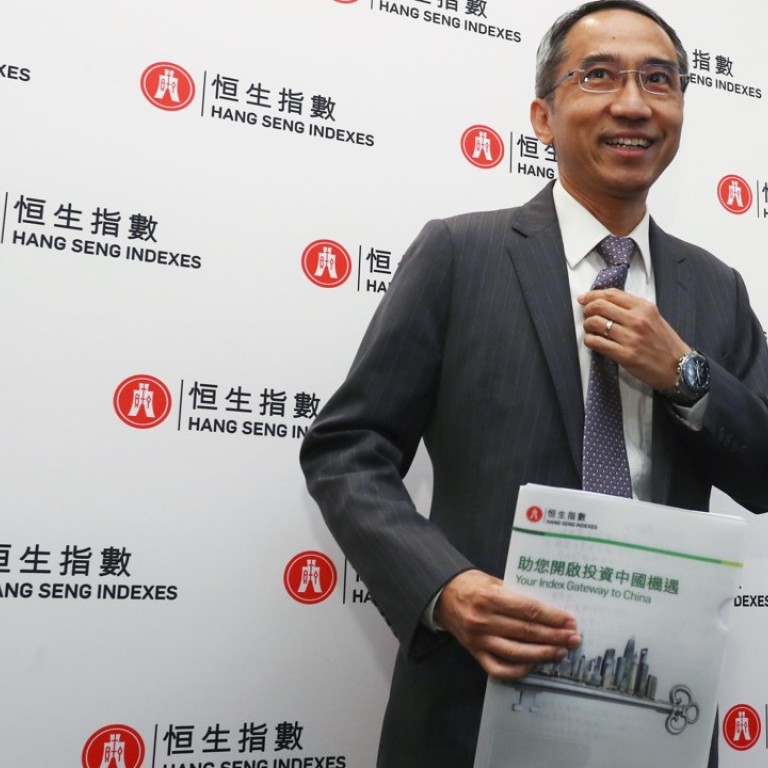
New Hong Kong dual-share listings to be tradeable through Stock Connect schemes
Index compiler’s decision means mobile phone maker Xiaomi will join Hang Seng Composite Index, allowing both mainland Chinese and international investors to trade its shares
Companies with dual-class shareholding structures that list on the Hong Kong bourse under its new listing rules will join the Hang Seng Composite Index so that they can be traded by mainland Chinese and international investors through the Stock Connect schemes, the index compiler, Hang Seng Indexes Company, said on Monday.
The first such company is likely to be Chinese mobile phone maker Xiaomi, which filed for a listing in Hong Kong last week that could be the world’s biggest flotation since Alibaba Group Holding’s US$25 billion debut in 2014.
Such companies would not join the benchmark Hang Seng Index for now, the compiler said, meaning passive fund investors that track the Hang Seng Index would not be able to trade in them as they only buy companies in the benchmark index.
The decision, which comes just after the bourse operator, Hong Kong Exchanges and Clearing (HKEX), unveiled reforms to allow companies with dual-shareholding structures to list on the exchange for the first time, will be subject to a review at an unspecified time in the future, according to the index compiler.
“The listing reform aims to attract more technology firms to list, but we also need to achieve a balance of market concerns … there are fund mangers who have expressed concern that they would be forced to buy into these stocks if they are included in the benchmark,” said Vincent Kwan, director and general manager of Hang Seng Indexes Company.
“We would need to wait for more companies with dual shareholding structures to list here and monitor their trading patterns before we can decide on what conditions we should impose for them to be qualify to be included in Hang Seng Index,” Kwan said.
Dual-class shareholding allows founders or key management to own a premium class of shares which gives them voting rights over other shareholders. Such structures are popular among tech firms such as Google and Facebook, but the Hong Kong bourse’s previous refusal to allow such structures had seen it lose out as a choice of IPO destination.
However, some local fund managers have expressed concern that companies with such structures do not follow the one-share one-vote principle that previously defined Hong Kong’s listing rules. This has led some of them, particularly passive fund managers that track the major indices, to urge the index compiler not to add these firms into the Hang Seng Index.
The Hang Seng Index covers the top 50 largest blue chips, while Hang Seng Composite Index has 483 constituent stocks.
“It is good to see dual-class shareholding companies on the Hang Seng Composite Index so as to allow mainland Chinese to invest via the Stock Connect schemes,” said Christopher Cheung Wah-fung, a lawmaker who represents Hong Kong's stock brokers. The Stock Connect schemes link the Hong Kong, Shanghai and Shenzhen exchanges, allowing both onshore and offshore investors to trade in all three markets.
However, he urged the index compiler to consider quickly including such firms in the Hang Seng Index, as they are taking important roles in the local economy.
“Excluding them would mean less fund managers would invest in them and hence the liquidity of stock trading would be affected, as would the competitiveness of Hong Kong in trying to attract these companies to list here,” Cheung said.
Another pillar of the listing reform was to allow biotechnology firms that have yet to generate any revenue to list in Hong Kong, an effort to capture part of a growing industry. However the compiler will not consider including such firms in any major index for now, Kwan said, after some investors raised concerns over risk.
“These biotech companies are new to Hong Kong investors. We need time to study their trading patterns before including them in major indices,” he said.
One week after the launch of the new listing rules, only Xiaomi has submitted an application, in contrast to market expectations of about a dozen firms.

